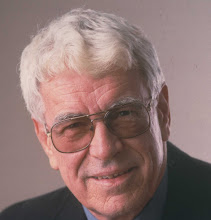The decline of Canada's commitment to peacekeeping, says Carolyn McAskie, is “the greatest disappointment of my life.” Peacekeeping is a treasured Canadian tradition; it was practically invented by Lester Pearson, and for two generations this country was among the world's most dedicated peacekeepers.
Today, says McAskie, we're not even a player. Our peacekeeping is a memory. We rank 56th in the world in our contribution to peacekeeping.
Carolyn McAskie knows. She spent 30 years with CIDA, the Canadian International Development Agency. In 1999 she joined the United Nations, becoming Assistant Secretary-General for Humanitarian Affairs and also heading the UN peacekeeping mission in Burundi. Sixteen months ago she was appointed Assistant Secretary-General for peacebuilding support, attached to the UN's new Peacebuilding Commission. She was recently in Halifax to deliver the Lloyd Shaw Lecture on Public Affairs at Dalhousie University and to participate in a symposium on peacebuilding.
Peacebuilding? Whuzzat?
In 1961, as a young peace activist, I did fundraising for the Canadian Peace Research Institute created by physicist Dr. Norman Alcock. Huge amounts were being spent on war research, euphemistically called “defence research.” Alcock – who died last March, at 88, bless him – argued that we should also be studying ways to prevent war and resolve conflicts peacefully. In 1961, that idea was novel, shocking and suspect, but dozens of academic programs cover that field today.
The research shows that achieving peace involves at least three major phases. “Peacemaking” means bringing an end to a violent conflict. “Peacekeeping” is the maintenance of the ceasefire and the prevention of fresh violence – for example, by soldiers patrolling the ceasefire line.
And “peacebuilding” -- the new concept -- is the long-term process of creating an environment which ensures that the inevitable conflicts in a society, or between nations, are worked out within a non-violent framework. Carolyn McAskie's new UN agency is currently working in Burundi and Sierra Leone. Each has a recent history of violent conflict, and either could slide back into violence. The peacebuilder's role is to ensure that doesn't happen, ever.
Canada will be joining the Peacebuilding Commission next July – but the decay of our peacekeeping capacity, says McAskie, means that we're in danger of arriving without the ability to do anything useful for those two beleaguered African nations.
What has happened to us?
Traditionally, she says, Canada recognized itself as a “middle power” which couldn't rely for its security on force. A great power might believe that security lay in military strength, and might believe it could win a war if necessary. A middle power could never win a war, though it could certainly lose one. For a middle power, peace is the only security.
For Canada, then, peacekeeping was not mushy-headed do-goodism, but hard-headed realism. Peacekeeping in Suez was not simple altruism. It was a practical exercise in defence of Canada, which would have been instantly vaporized if the conflict had escalated into a nuclear duel between the US and the USSR.
Peacekeeping also suited our character. McAskie cites a quip from The Economist that Canada is the only social democratic country which never elected a social democratic government. Like western Europeans, we believed in a mixed economy, a strong social safety net, and an individual willingness to support state initiatives with taxes. We believed that in a rich country, nobody should be homeless or hungry. We had seen that in the Depression, and we did not ever want to see it again. There were no food banks in the Canada I grew up in.
And we were proud to be among the world's leading peacemongers.
Individual Canadians, says Carolyn McAskie, still care about peace and social justice – but our government and other institutions have lost sight of our traditions. Since the 1990s, we have been absorbed with internal matters – western alienation, Quebec separatism, the deficit. We said we couldn't afford peacekeeping and a decent level of foreign aid. We told the world we'd be back, but we never came back.
Instead we joined the NATO effort in Afghanistan, which tries to combine peacemaking, conquest, peacekeeping and peacebuilding. But that's impossible. You can't do it all simultaneously – and certainly not with a foreign army.
“The process was founded on a great mistake,” says Carolyn McAskie. “The Taliban was never at the table. You may think the Taliban is completely evil, but the Taliban has to be at the table. If you want to get out of hell, you have to talk to the devil.”
A disquieting thought, but a deeply Canadian one. The only solution is peace, and the only route to peace is negotiation with the other side. You don't have to like the other side, but you do have to deal with them.
Waging peace, a small country can make a large difference. We've done it before. We should do it again.
-- 30 --
Monday, December 3, 2007
Subscribe to:
Post Comments (Atom)

No comments:
Post a Comment